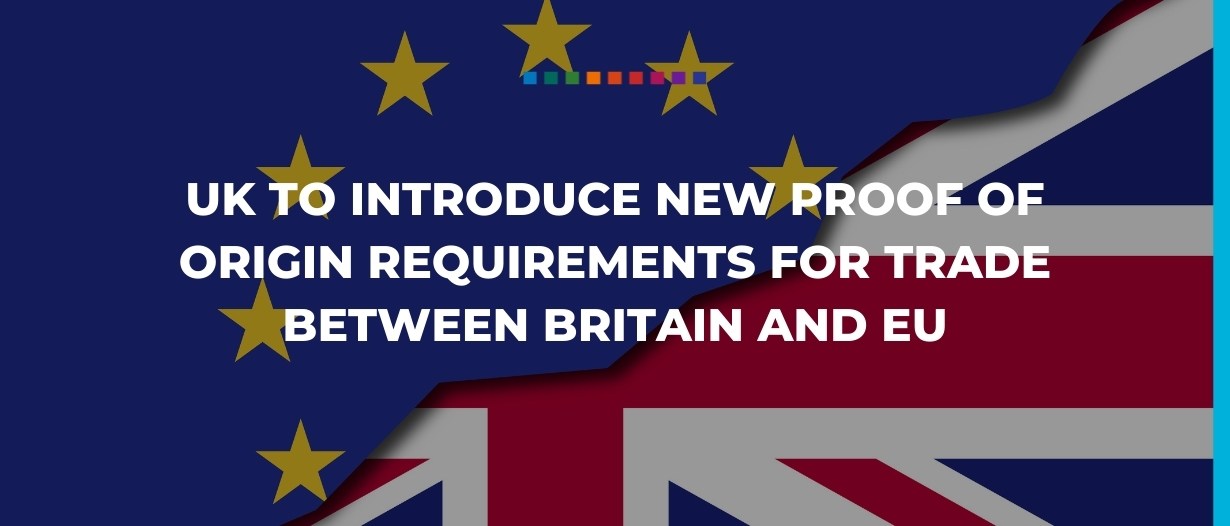The UK government is preparing to introduce new rules on suppliers’ declarations for trade between Britain and the EU, which will come into effect at the end of 2021.
As of 1 January 2022, Her Majesty’s Revenue & Customs (HMRC) has said that UK traders must be ready to comply with new regulations on supporting documents to establish proof of origin for traded goods.
Importantly, the upcoming changes will impact UK traders’ eligibility for preferential tariffs under the EU-UK Trade and Cooperation Agreement (TCA), which came into force on 31 May this year.
Using a supplier’s declaration to establish proof of origin
When a UK supplier provides a business with information needed to prove the origin of its goods, this is known as a supplier’s declaration.
Likewise, in order to pay less customs duty on goods imported from a foreign country with a UK trade agreement, a UK business will normally need to have a proof of origin for the goods.
At present, the UK’s rules on proof of origin stipulate that both importers and exporters must provide HMRC with a supplier’s declaration for the goods they trade on or before 31 December 2021.
The supplier’s declaration can be provided at any time in the trade transaction, including after the goods have been delivered to their next-in-line buyer.
However, if a supplier’s declaration is not provided to HMRC by 31 December 2021, then different rules will apply thereafter.
Beyond 1 January 2022, if a company exports goods from the UK to the EU, then the company must now hold a supplier’s declaration at the time that a statement on origin is issued.
UK-EU bilateral cumulation trade
Where the goods classify as “non-originating” under the EU-UK TCA – which includes materials whose origin cannot be determined – UK traders must follow the TCA’s relevant bilateral cumulation and supplier’s declaration guidance.
For example, where a product has obtained its originating status through cumulating production carried out in the EU on non-originating materials, the exporter of those goods must get a declaration from the supplier of those materials.
If a UK business is exporting goods to the EU for bilateral cumulation, it must issue a supplier’s declaration when each of the following applies to the goods:
- they do not originate in the UK
- they have had some UK processing carried out on them
- they will be used by an EU customer to produce another product that meets the rules of origin for import to the UK
If a UK business is importing goods from the EU for bilateral cumulation, it must get a supplier’s declaration from its EU supplier when each of the following applies to the goods:
- they do not originate in the EU
- they have had some EU processing carried out on them
- they will be used to produce another product in the UK that meets the rules of origin for export to the EU
The supplier’s declaration must also use the wording set out in Annex 6 (Supplier’s Declaration) of the EU-UK TCA.
If a UK business supplies goods to another business in the UK, it may be asked by HMRC to provide a supplier’s declaration to a UK customer to prove:
- the UK origin of the goods
- any processing or value the supplier has added to the goods if they are non-originating
If a UK business exports goods, it may need to get suppliers’ declarations from its UK suppliers to prove the origin of the materials used in its manufacturing processes, or for finished products that the business may buy and re-export.
If a UK business is importing originating goods, it will not need a supplier’s declaration, but must have a proof of origin to claim a preferential duty rate.
Businesses that do not need a supplier’s declaration include those such manufacturers, whose operation fits the description below:
- all non-originating materials change tariff heading as set out in the origin rule
- the value of any non-originating materials is within the limit of the percentage rule
- the manufacture from materials happens at or before the stage of production set out in the origin rule
For more on the UK’s suppliers’ declarations and proof of origins rules, visit gov.uk.
























